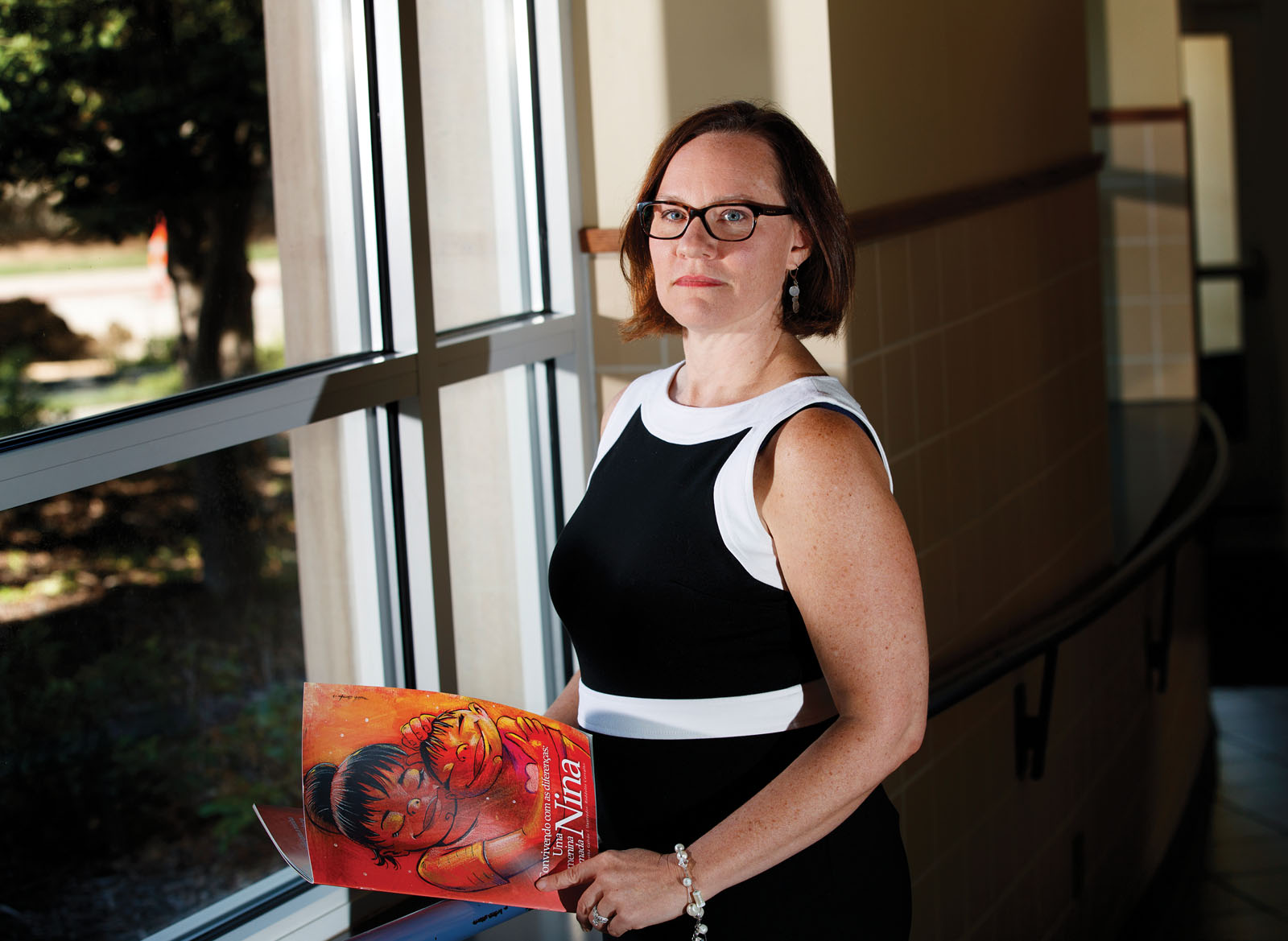Helping Families Cope with Zika Syndrome
The Zika outbreaks in 2015 and 2016 grabbed headlines worldwide when evidence linked the virus to brain damage in babies whose mothers were infected while pregnant.
Media attention waned along with the epidemic. But for families and caregivers of children living with congenital Zika syndrome, a neurological condition associated with cognitive and physical disabilities, the challenges are just beginning.

“There is a need for early intervention programs in both the U.S. and abroad to address caregivers’ functioning and well-being, which in turn can support children’s development.”
Natalie Williams
“These families face the typical stressors associated with parenting young children, and must also manage numerous challenges that are specific to their child’s medical and developmental needs,” said Nebraska early childhood researcher Natalie Williams. “Supports that could help alleviate this burden and promote positive outcomes often are not easily accessible.”
That’s why Williams, assistant professor of child, youth and family studies, collaborates with Brazilian researchers at the Federal Rural University of Pernambuco, or UFPRE, to develop targeted, low-cost programs to support these families. Her team is surveying about 50 caregivers of Zika-affected infants and toddlers. Researchers are identifying a high-risk group – caregivers with anxiety and depression – and interviewing them about their daily routines.
They’re also mapping family and community systems to identify support sources in Brazil and how families use them. This information, along with the interviews, will guide the team in designing effective support programs.
Their findings also may apply to early intervention programs in the U.S., which often overlook caregiver support.
“Providing support for children with disabilities is not a novel thing,” Williams said. “But there is a need for early intervention programs in both the U.S. and abroad to address caregivers’ functioning and well-being, which in turn can support children’s development.”
The project is part of the University of Nebraska-Lincoln/Brazil Early Childhood Partnership, launched in 2016 to enhance the lives of young children and families through global interdisciplinary research collaboration. In November 2017, the Nebraska contingent traveled to Brazil to train graduate students at UFPRE and meet participating families. In April 2018, the Brazilian contingent came to Nebraska for strategic planning.
The project receives funding from the university and Brazil’s Maria Cecilia Souto Vidigal Foundation.
Natalie Williams
“Nebraska has a rare combination of high expectations for excellence in research and teaching, and the support to help faculty meet these high expectations. It also offers unique resources and connections to become involved in international work.”
+ Additional content for Helping Families Cope with Zika Syndrome
Study explores how to support caregivers affected by Zika virus